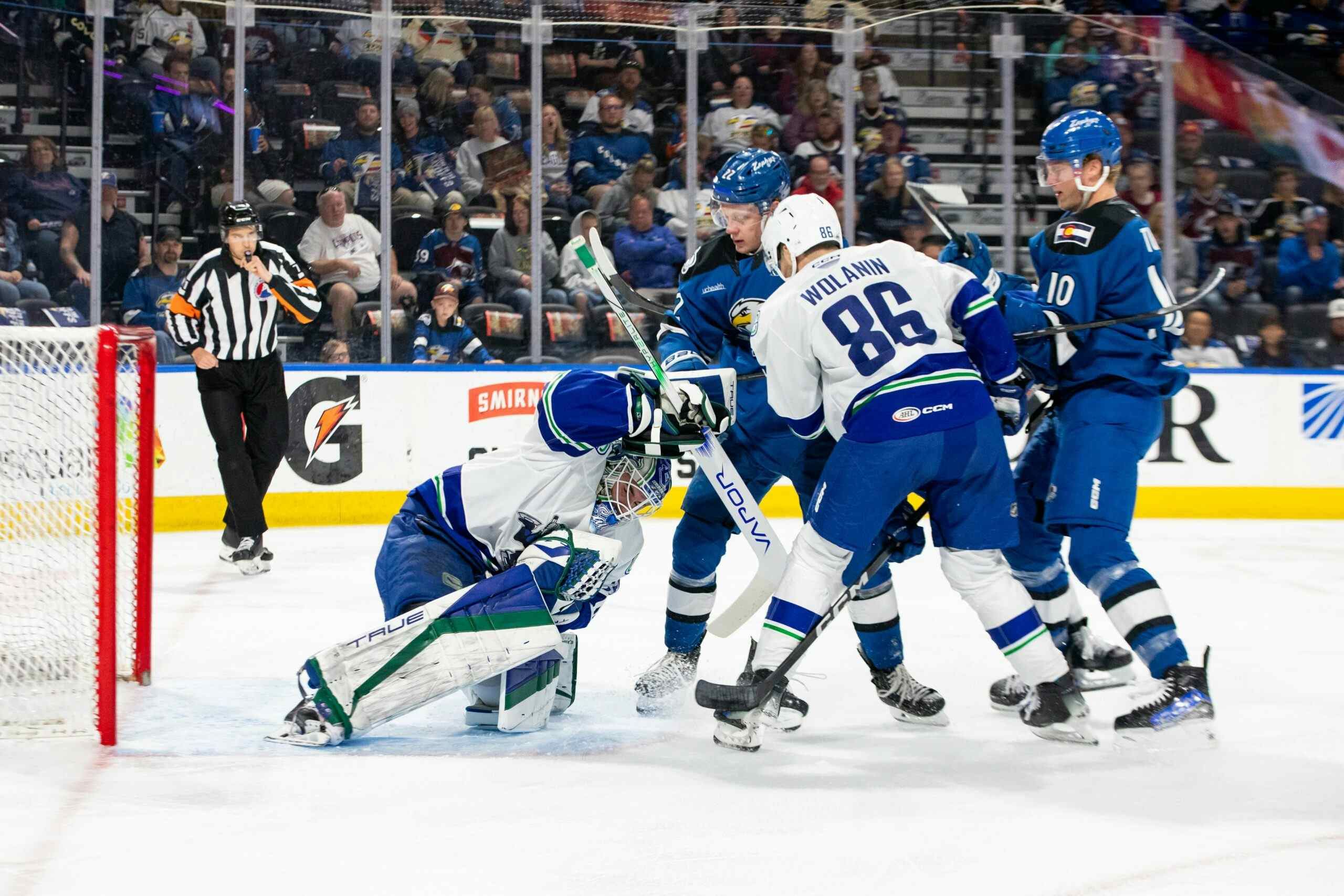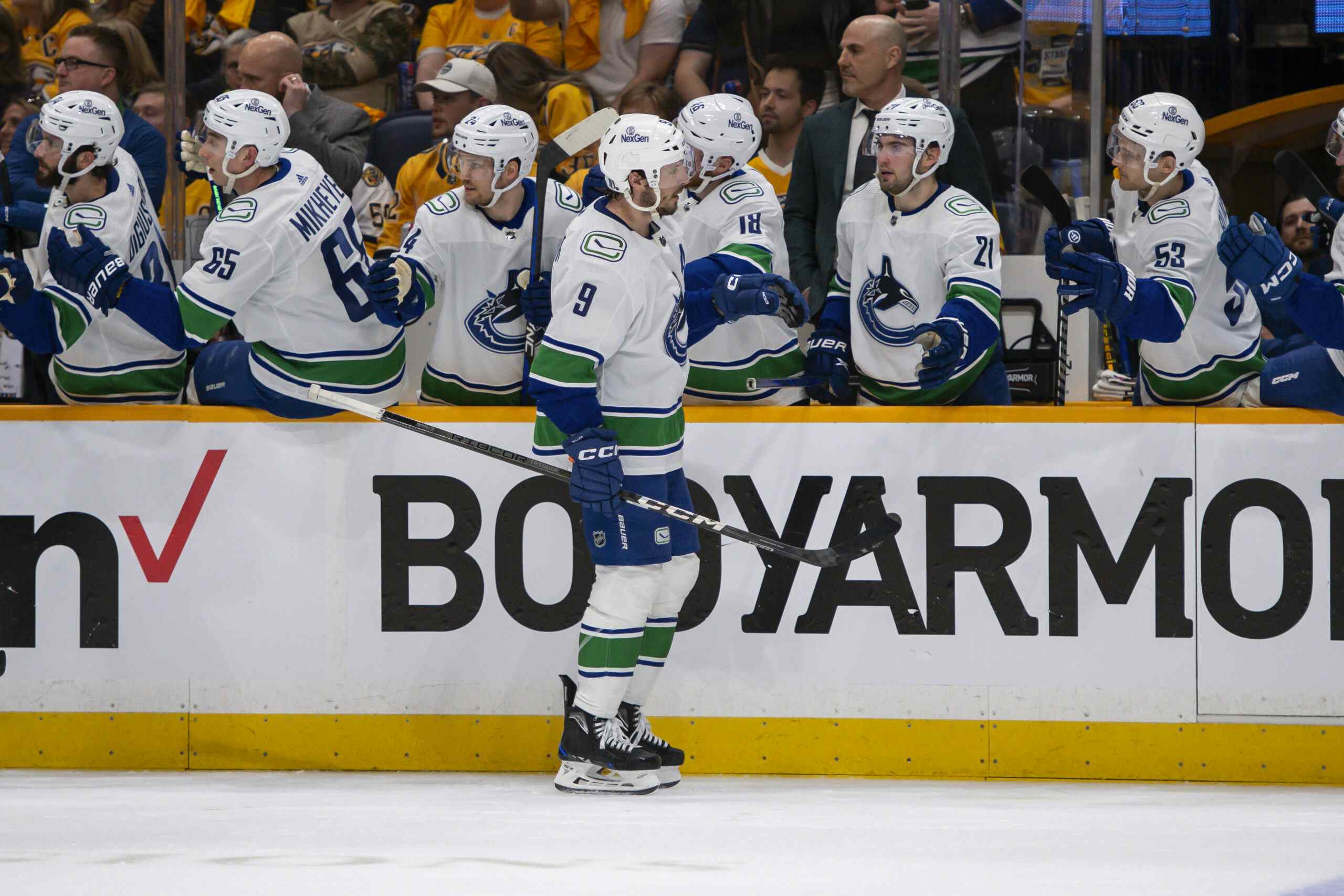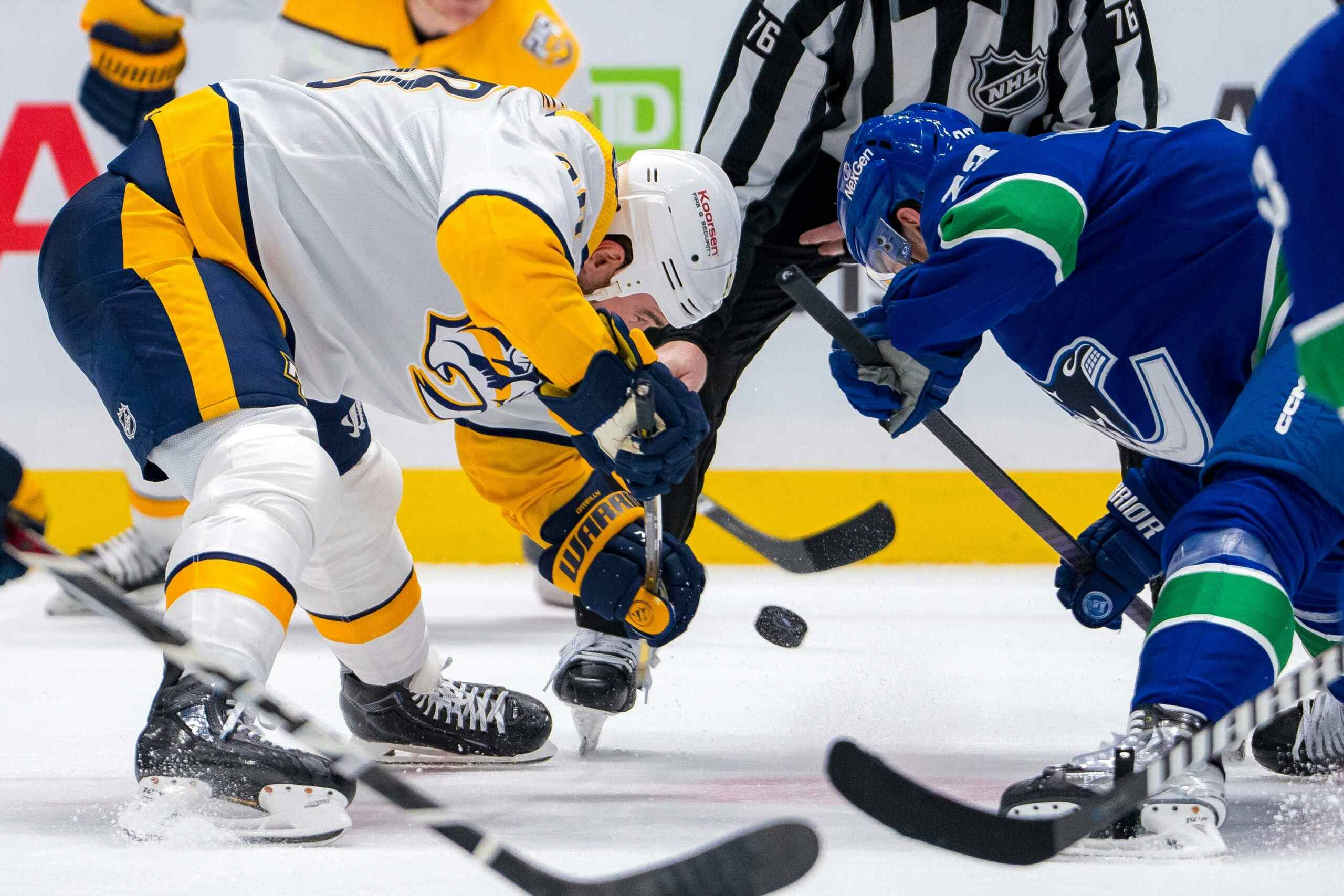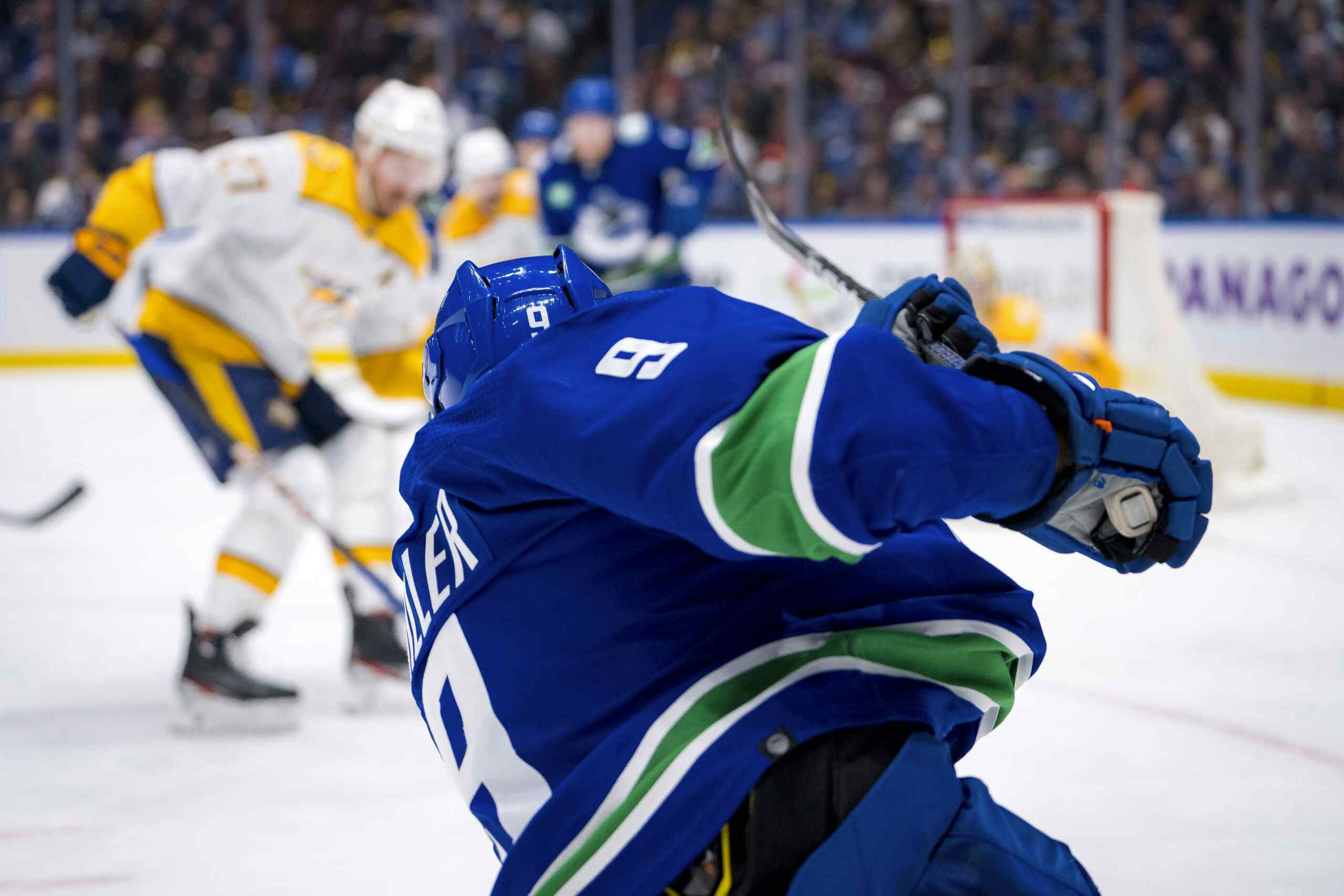The Nashville Predators and the salary cap floor
By Cam Charron
12 years ago
The trade that sent Brett Lebda to the Nashville Predators is an intriguing one for two reasons, and the strategy behind the deal for both teams is one that we may see more often as rich teams attempt to maximize their spending money and lesser teams attempt to maximize the value they get from their players.
From one perspective, it can be seen as the Toronto Maple Leafs trading Brett Lebda, who came off an extremely disappointing season with Toronto, in exchange for taking on some of Nashville’s salary. From another perspective, it’s the Predators dumping salary on the Leafs in exchange for a tangible National Hockey League prospect in Cody Franson, who had a fantastic junior career with the Western Hockey League’s Vancouver Giants.
Franson has seen offensive success at both the WHL and American Hockey League levels, and without getting too much into his play, it’s worth noting that this was a player who played junior in the same city where Leafs assistant General Manager Dave Nonis manned the helm of the NHL Canucks at the same time.
As for Matthew Lombardi, he played just 2 games with the Predators last season after sustaining a concussion. The remainder of his 4-year/$14M contract is in doubt and a number that the Predators can’t afford to spend on a player that may not count against the salary cap. From Nashville’s view, they would want all the money spent on players to be against the cap, oddly enough, to keep their heads above the floor of $48.3M.
The salary cap floor presents an interesting situation for a number of the lower-revenue teams in the league. While teams in baseball have been shown to compete with lower revenues, none of them had a dollar figure that they needed to spend. With the cap floor so high, paying money to an injured player while also finding $3.5M to spend on another player is essentilly doubling a salary, and it’s simply money the Predators may not be able to afford to spend, but Toronto can.
The Predators are below the cap floor to a tune of around $15M, but despite this, they are still looking for the value signings. Matthew Lombardi, Joel Ward and Steve Sullivan have all skipped town, despite potentially still being serviceable NHL players. The Predators ignored the free agency frenzy of July 1st and signed Nicklas Bergfors to a one-year deal for $575K. Compared to Florida’s Dale Tallon, who threw money at every warm body available to help him get over the cap floor, Nashville’s David Poile is taking a more economical approach, and it shouldn’t be long before they make a few trades, potentially with players whose cap hit is higher than the salary.
Two players that immediately come to mind are Scott Hartnell of Philadelphia, or Scott Gomez of Montreal, who is coming off a season playing through some low percentages and whose salary drops considerably lower than his $7.357M cap hit next season.
Gomez may not be the picture of value, but Nashville has the summer to scroll through NHL rosters in an effort to add value without giving up much. They have a wealth of prospects like Franson they could throw into their trades in exchange for cap space.
Recent articles from Cam Charron





